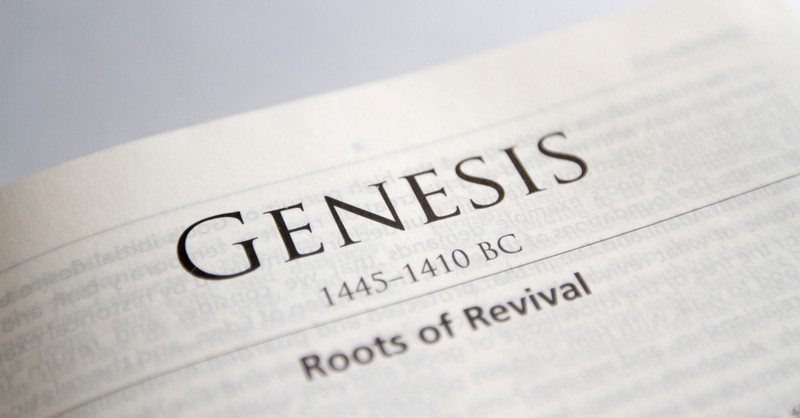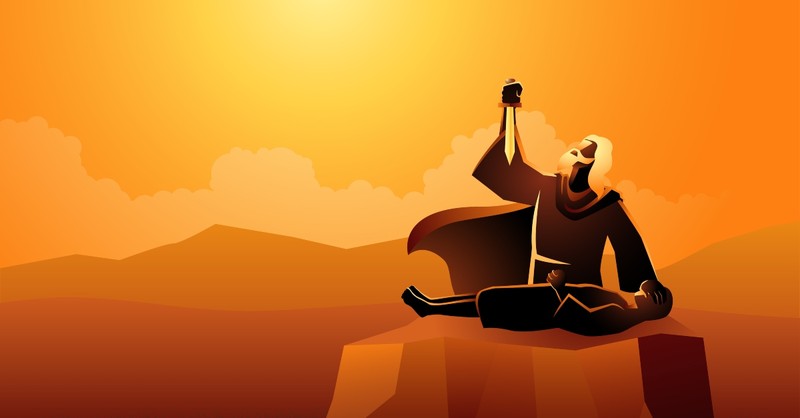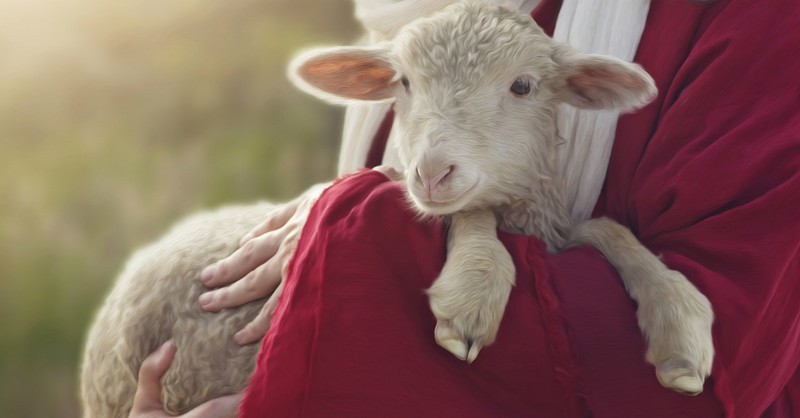When Abraham submitted to God’s command, and Isaac followed his father to the sacrificial altar, it prophesied the greater sacrifice that would take place centuries later. A Father would ask His Son to die as a sacrifice, to pay the price for sin, and that Son would obediently follow as well.
Throughout the Bible, God showed what His plan for the salvation of humanity entailed. Sin needed to be paid, but no sinner could really bear the burden required to pay the price in full. Even with his great faith, Abraham could not pay the price for his sins, nor could Isaac. Only a perfect sacrifice would do.
Jesus Christ came to earth as the perfect lamb, who paid the substitutionary atonement for everyone’s sins. In other words, He substituted himself for all sinners, including Isaac. He was, in a metaphorical and literal sense, the ram in the thorns that God provided to die in Isaac’s place. Jesus died for Abraham, Isaac, Jacob, and all mankind.
What Happened to Isaac?
Isaac went on to live a life of faith even after his encounter with God on the mountain top, though by no means did he live a perfect life. When the time came for Isaac to marry, Abraham sent his servant back to his homeland so he would not marry a Canaanite. Abraham was from the land of Ur in Mesopotamia, and he travelled to Canaan because God told him to do so. This servant brought back Rebekah, “...and she became his wife and he loved her” (Genesis 24:67).
They appeared to have a loving relationship for quite some time, but some problems arose in their parenting. They had twin boys, Jacob and Esau, who were very different boys. Esau was the older, described as a skilled hunter, an outdoorsman, and hairy. Jacob preferred to stay closer to home, help his mother, and dwelled in the tents. The Bible says, “Isaac loved Esau because he ate of his game, but Rebekah loved Jacob” (Genesis 25:28). The overt favoritism each parent played led to division between one another and between the brothers.
Eventually, Jacob fled back to his grandfather’s homeland and lived with his sister’s brother Laban for many years, working to marry Laban’s daughter Rachel. He wound up married to both Rachel and her sister Lea. Eventually Jacob returned to Canaan, and made peace with his brother, but not until he wrestled God in the wilderness.
Jacob had twelve sons, who became the patriarchs of the twelve tribes of the nation of Israel. Esau married Canaanite women, in part to defy his father, and became the father of other nations. Even though Isaac was not a perfect man, God blessed him tremendously, “Sojourn in this land, and I will be with you and will bless you, for to you and to your offspring I will give all these lands… And in your offspring all the nations of the earth shall be blessed” (Genesis 26:3-4).
The final part of this promise from the Lord foreshadowed Jesus Christ, the ultimate blessing for all the nations, who would be a descendent of Isaac through his son Jacob, and his grandson Judah.
Photo credit: ©Getty Images/rudall30






_639003522088907085.jpg)
